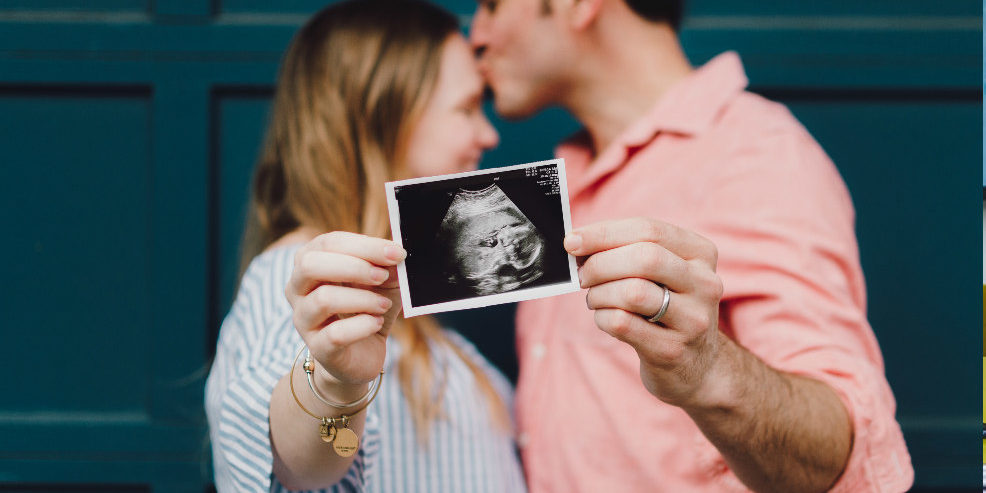How to protect your babymoon with the right pregnancy insurance
For those that are unsure of what the term actually means, a ‘babymoon’ is potentially the very last holiday expectant moms and dads will enjoy alone before their new addition makes his or her grand debut. It’s a fantastic way to hit the pause button on the chaos that pregnancy planning can sometimes bring, but just like any other vacation, organizing a babymoon takes time and consideration. If you’re thinking about going on a babymoon, here are some top tips and pregnancy insurance information curated by our Pacific Prime Thailand team to guide you through the planning process.
5 top tips for a safe babymoon
Are you dreaming of a getaway in Bali or Phuket, or maybe somewhere further afield like the Caribbean or Hawaii? Either way, it goes without saying that protecting mom and bump takes central precedence when planning a babymoon. Here are a few tips and considerations to keep in mind:
Are you travelling to an at-risk destination?
When you’re pregnant, you’ll need to put even more consideration into the safety of your intended destination. You can take a look at the Center of Disease Control’s (CDC) Travel Advisories for the most up-to-date safety and security information. If you’re planning on travelling here within the Land of Smiles, click here to read our article on Thailand’s health risks.
For example, even though the number of Zika cases are dwindling these days, pregnant women are advised not to travel to Zika-infected areas, as infection during pregnancy can cause Microcephaly (a birth defect where the baby’s head is smaller than it should be) and other congenital defects. To brush up your knowledge on Zika and pregnancy insurance, read our blog post on the topic here.
When is the best time to go on a babymoon?
According to an article by the American Pregnancy Association, as long as there are no identified health concerns or complications with your pregnancy, the best time to travel is the second trimester. By this point, you are past the morning sickness that is typically associated with the first trimester, and several weeks away from the third trimester (when moms-to-be are often easily fatigued).
Take extra safety precautions when travelling by car, bus, train, or plane
Protecting mom and baby is imperative when travelling to your babymoon destination. Here are a number of things to keep in mind to make travelling to your holiday destination safer and more comfortable:
- Buckle up with both lap and shoulder belts everytime you travel by car
- Ensure the airbags in your car are on
- If you’re travelling by bus, be sure to remain seated at all times when the bus is moving. If you must use the restroom, hold on to the rail/seats to maintain your balance.
- It can be hard to maintain your balance when using train restrooms. Be sure to hold on to the rails while the train is moving.
- If you’re travelling by air, it can help to choose an aisle seat so that you can more easily stretch your body and reach the restroom.
Avoid travelling international if…
- You’re in your third trimester; this will help avoid the risks of premature labor;
- You’re pregnant with more than one baby;
- You currently have, or previously had placenta abnormalities; or
- You’re at a risk of a miscarriage.
See your doctor before heading to your babymoon destination
Before your trip, it is important to see your doctor in advance so that you can get cleared for takeoff should you have a chronic health condition. Some of the concerns you might want to talk with your doctor about include:
- Immunization: Ask if you require any vaccines before you leave.
- Gas and diarrhea remedies: If you’re travelling by air, you might want to consider gas and diarrhea remedies, as the increase in altitude can cause intestinal gas to expand.
- Prenatal care: Depending on where you’re going and for how long, you might require prenatal care at your intended destination. Decide what care you will need and which facility will provide it. Your doctor may be able to recommend a facility/doctor at your destination.
What are my pregnancy insurance options?
The idea of packing your bags and heading to an exotic locale to relax before the baby is born is indeed alluring, as it should be. While the chances of something going wrong are generally pretty slim, babymoons can quickly turn into nightmares if a health complication were to arise. As such, wherever you’re going, we highly recommend making sure you have adequate insurance to cover pregnancy-related medical care and emergencies.
One thing to bear in mind here is that pregnancy-related care is very often listed as an exclusion in health insurance policies, so you will need to do your homework when securing coverage. Now, you might be asking, “So what are my pregnancy insurance options?”. Here are the two main pregnancy insurance options available to protect your babymoon:
Pregnancy travel insurance cover
If you are travelling internationally, and only have a local health insurance policy, travel insurance might be the best option for you. While the coverage benefits, limits, and terms will differ depending on the plan and insurer you purchase your plan from, travel insurance typically covers maternity-related emergency treatment, such as maternity complications and premature birth.
It is important to be aware, however, that travel plans will usually impose a number of restrictions and limitations on pregnancy complication care. For example, the trip for which the plan is taken out for must end on or before your 26th – 32nd week of pregnancy (the exact week will vary depending on the plan’s T&Cs).
This means that if you plan to travel after the specified limit, you won’t be able to make any claims related to pregnancy-related treatment during your babymoon. Please also bear in mind that childbirth is excluded from virtually every single travel insurance policy.
International pregnancy insurance
Pregnancy insurance, also commonly referred to as maternity insurance, is an additional type of cover that can be purchased on top of your health insurance policy to address costs related to all aspects of maternity treatment, such as prenatal care (e.g. tests and ultrasounds) and childbirth (including medically necessary C-sections).
When finding an insurance policy that offers maximum peace of mind for mom and baby, international pregnancy insurance is the superior choice as it ensures that you have comprehensive maternity coverage both at home, and in virtually every clinic and hospital abroad.
Securing pregnancy insurance ahead of time, however, is imperative, as virtually all maternity plans come with a waiting period of at least 10 – 12 months; this specified amount of time must pass before the insurer will accept claims for pregnancy-related care. To get the lowdown on maternity insurance in Thailand, click here.
To learn more about your pregnancy insurance options, or for some friendly advice and a free quote, contact our team of experts today. As Thailand’s leading insurance broker, our team are standing by to identify the best expat health insurance for your budget and medical needs.
- Why children should have health insurance cover in Thailand - March 18, 2021
- Vaccinations for Thailand: An up-to-date list of all essential inoculations - January 27, 2021
- Important questions to ask about teacher’s health insurance in Thailand - January 26, 2021





Comments
Comments for this post are closed.